Trump wants to rebuild ties with North Korea and Kim Jong-un
- Update Time : Sunday, February 9, 2025
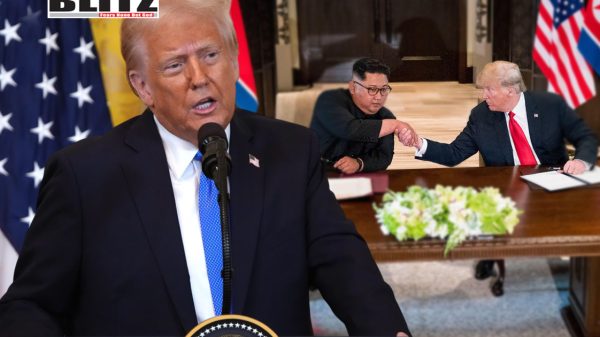
The 47th US President Donald Trump has reaffirmed his interest in reestablishing diplomatic ties with North Korean leader Kim Jong-un, citing their past rapport and the necessity of engagement to ensure stability in the Korean Peninsula. Speaking at a press conference on February 7, Trump declared, “We will have relations with North Korea and with Kim Jong-un,” underscoring his belief that direct diplomacy with Pyongyang is vital for maintaining peace.
Trump took the opportunity to reflect on his previous meetings with Kim, emphasizing their unique diplomatic relationship. “I got along with him very well, as you know. I think I stopped the war,” Trump stated, reiterating his long-held assertion that his 2016 election victory prevented a potential conflict with North Korea.
“I think if I wouldn’t have won that particular election, you would have ended up in a very bad situation. But I did, and we had a good relationship,” he continued. Trump highlighted his personal approach to diplomacy, arguing that his direct engagement with Kim was instrumental in preventing an escalation of hostilities.
Trump has long emphasized the role of personal relationships in global diplomacy. In his remarks, he claimed that his rapport with Kim was an asset not only to the United States but also to the world. “I think it’s a very big asset for everybody that I do get along with him. I mean, I get along with him, he gets along with me, and that’s a good thing, not a bad thing.”
The former president also noted that other regional powers, particularly Japan, saw value in his diplomatic efforts. “I can tell you that Japan likes the idea because their relationship is not very good with him [Kim Jong-un], and if I can have a relationship with not only him but other people throughout the world where there seem to be difficulties, I think it’s a tremendous asset for the world, not just the United States.”
Trump’s engagement with North Korea marked a significant shift in US foreign policy. His administration’s approach was initially marked by extreme tensions, with Trump and Kim exchanging fiery rhetoric in 2017. Trump famously referred to Kim as “Rocket Man” and threatened North Korea with “fire and fury like the world has never seen” in response to Pyongyang’s missile tests.
However, the hostility gave way to an unprecedented diplomatic opening. In June 2018, Trump and Kim met in Singapore for the first-ever summit between a sitting US president and a North Korean leader. The meeting resulted in a broad agreement on denuclearization, though it lacked concrete steps for implementation.
A second summit in Hanoi in 2019, however, ended without a deal. Disagreements over US sanctions relief and North Korea’s nuclear program led to a breakdown in negotiations. Despite the setback, Trump continued to maintain personal ties with Kim. Later in 2019, Trump made history by becoming the first sitting US president to set foot in North Korea during a brief but symbolic meeting at the Demilitarized Zone (DMZ).
Throughout his presidency, Trump frequently mentioned his personal correspondence with Kim, referring to the North Korean leader’s letters as “beautiful” and praising their direct communication as a means of avoiding conflict.
Despite the historic nature of Trump’s engagements with Kim, critics argue that his diplomatic overtures did not lead to substantive progress in curbing North Korea’s nuclear ambitions. Pyongyang continued to develop its missile program and conducted multiple tests even as negotiations stalled.
Analysts have pointed out that Trump’s emphasis on personal diplomacy may have lacked a coherent long-term strategy. While his unprecedented meetings with Kim symbolized a new approach to US-North Korea relations, they ultimately failed to produce a lasting denuclearization agreement. The absence of concrete steps following the Singapore summit left many experts skeptical of Trump’s claims that he had prevented war.
Moreover, Trump’s decision to engage with Kim without securing firm commitments from North Korea was met with criticism from both political opponents and international observers. Some argued that his willingness to meet Kim lent legitimacy to the authoritarian leader without achieving meaningful concessions in return.
With Trump actively campaigning for another term in the White House, the prospect of renewed engagement with Kim Jong-un has reentered the political conversation. If reelected, Trump may seek to revive talks with Pyongyang, potentially using his past relationship with Kim as a foundation for future negotiations.
One major question is whether North Korea would be receptive to reengaging with Trump. Since the collapse of talks in 2019, North Korea has further distanced itself from diplomatic efforts with the US. The Biden administration has attempted to restart negotiations, but Pyongyang has largely dismissed these overtures. Kim’s government has continued to develop its missile capabilities, raising concerns among US allies in the region.
Should Trump return to power, his approach to North Korea would likely hinge on whether he can convince Kim to return to the negotiating table under terms that align with US strategic interests. While Trump’s personal connection with Kim could serve as a diplomatic opening, it remains unclear whether it would lead to substantive policy changes.
The broader geopolitical landscape has also shifted since Trump left office. North Korea’s deepening ties with Russia and China present new challenges for US engagement. Pyongyang has strengthened its military cooperation with Moscow, particularly amid the ongoing conflict in Ukraine. Meanwhile, China’s growing assertiveness in the region complicates US strategic calculations.
If Trump were to pursue renewed diplomacy with North Korea, he would need to navigate these evolving dynamics carefully. Beijing and Moscow would likely play a role in shaping Pyongyang’s approach to negotiations, making it crucial for any US administration to consider the broader geopolitical context.
Trump’s latest remarks on North Korea signal his continued belief in the power of personal diplomacy. While his past engagements with Kim Jong-un were historic, they ultimately failed to deliver concrete results on denuclearization. If Trump were to return to the White House, his approach to North Korea would once again become a focal point of international diplomacy.
Whether his previous relationship with Kim can be rekindled and translated into tangible policy outcomes remains to be seen. However, one thing is clear: Trump’s brand of diplomacy-rooted in direct engagement and unconventional personal relationships-would once again redefine US dealings with Pyongyang if given another opportunity.


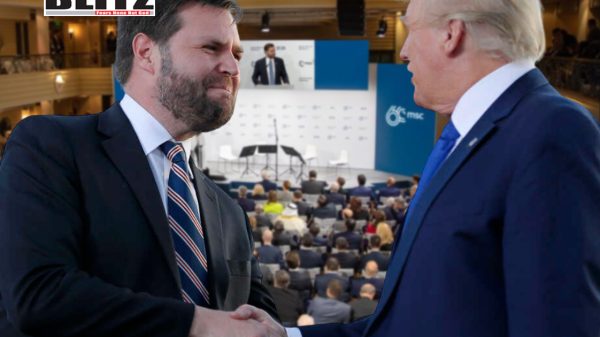

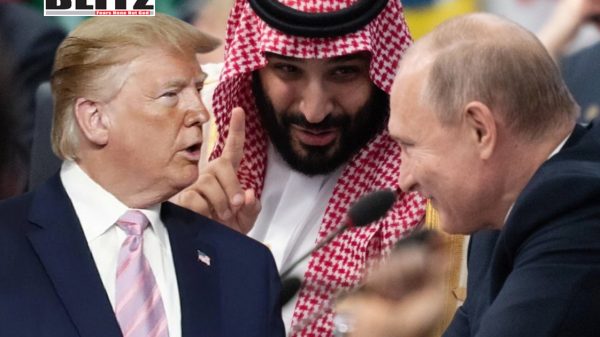
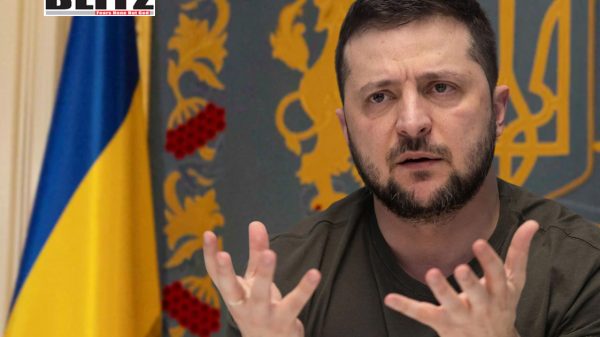

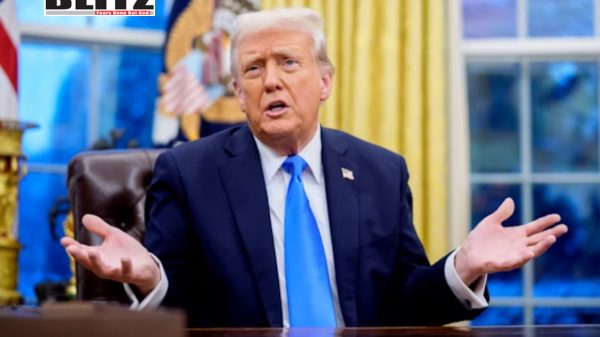
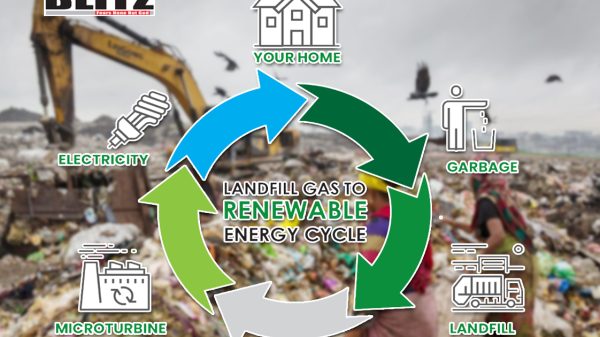
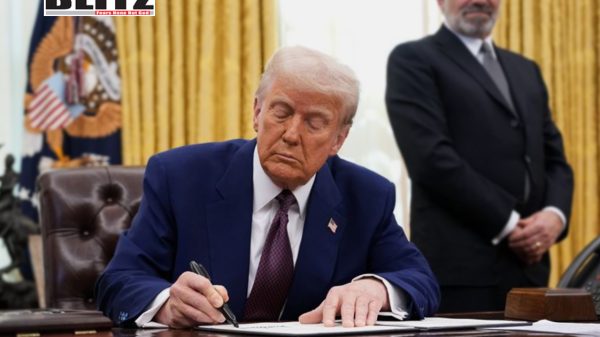




Leave a Reply